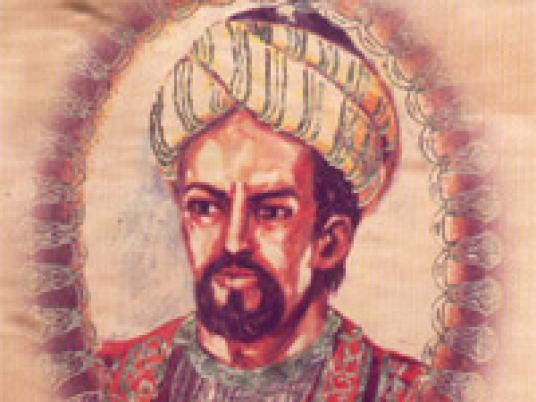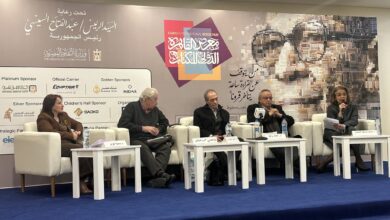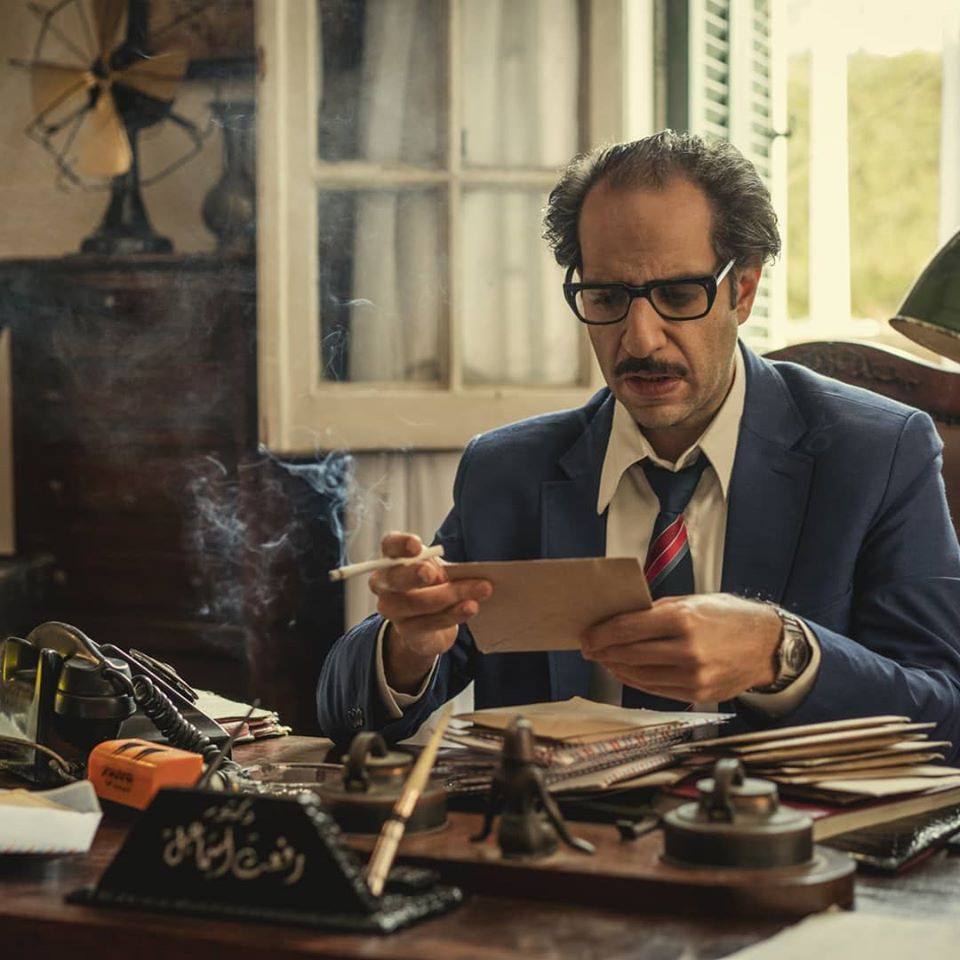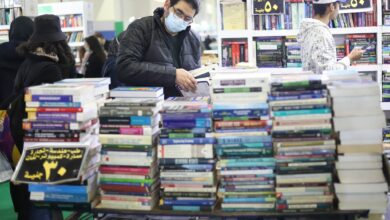
“Give me verse like that, give me a poet like Abu Tayeb al-Mutanabbi, and I’ll go with you to the ends of the earth.” —Character in Elias Khoury’s “As Though She Were Sleeping”
“As Though She Were Sleeping,” translated in two separate editions by Humphrey Davies (2011) and Marilyn Booth (2012), is one of several recent novels to feature excerpts from Mutanabbi’s poetry. Other Mutanabbi-infused novels include Radwa Ashour’s “Specters” (1999), trans. Barbara Romaine (2010), and Rasha al-Ameer’s “Judgment Day” (2002), trans. Jonathan Wright (2011).
The presence of the celebrated 10th-century poet in so many recent novels, says translator Marilyn Booth, “speaks for itself — he speaks in this time.”
Mutanabbi was born in AD 915, at the end of the Abbasid era, and was the son of a water carrier. He began composing his work as a young man, and it was in his youth that Ahmed ibn Hussein earned the controversial nickname “Mutanabbi,” meaning “he who would be a prophet.” His work was bold, hyperbolic and hypnotic, stretching and re-imagining the Arabic language. His often panegyric poems, which lauded various rulers, took him from court to court, from fame to greater fame, and influenced wordsmiths for centuries after. He has been called the “Seal of the Poets,” and his words continue to echo, enlighten, annoy and delight more than a thousand years after his death.
But although Mutanabbi’s words have been embedded in these recent translations, he has not been accorded an honored place in English translation. Indeed, at a recent literary event in London, Lebanese author Rasha al-Ameer said, “I am embarrassed that I have a translator for my works, and Mutanabbi, the poet of the Arabs, has no one.”
Wright, who translated Ameer’s novel, expressed reservations about whether a translation of Mutanabbi was indeed fully possible.
“Well, I did it, albeit only a few lines here and there, when I couldn’t find an existing translation. But my versions clearly fall short.” Ultimately, he said, his versions “didn’t sound very poetic.”
Wright questioned whether there was a way of making Mutanabbi not just accessible to an English-language audience, but alive as real poetry. Mutanabbi, who has often been compared to Shakespeare, requires more than an average translational effort. Some Mutanabbi lovers would prefer that he not be translated at all.
Certainly, translating Mutanabbi is difficult. Translator Barbara Romaine was named runner-up for the 2011 Banipal translation prize for her work on Ashour’s “Specters.” Romaine said that “easily the most challenging part of translating ‘Specters’ was the passages from Mutanabbi.”
“When I got to those passages,” she said, “my heart froze.”
Booth agreed that “translating [Mutanabbi’s] verses was hugely challenging,” and perhaps more so for her than for Davies, as she is not a scholar of pre-modern poetry. “So I am worried about inter-textual resonances that I would not pick up.”
Romaine seemed genuinely pleased by the end result of her translation. She said that, after a great deal of wrestling with the poetic excerpts in “Specters,” she produced a version that she sent off to Ashour. To Romaine’s delight, Ashour was encouraging.
“If someone like me, without really an adequate background in that area of Arabic literature, could produce a translation — with help, of course — that was creditable to someone with Radwa’s standards, then in theory there should be no reason why others could not do so, and in all probability do it better.”
Booth, like Wright, was not entirely happy with her versions of Mutanabbi’s work. But “at the same time, it was wonderful to read him and to try.”
Booth added that she was surprised to find that there were no “fully literary” translations of Mutanabbi’s poetry into English. The most prominent translator to have tackled Mutanabbi is the scholar A.J. Arberry. But Arberry’s is not a stand-alone translation, published for its aesthetic joys and beauties. Instead, it is mainly to help students struggling to understand the Arabic original.
The scholar R.A. Nicholson has taken a somewhat looser approach to some of Mutanabbi’s work.
“But Nicholson’s [translation] is very liberal and reads more like Pope or Dryden than Mutanabbi,” Wright said.
Most Anglo and European publishers are interested in contemporary rather than 10th-century work. But Mutanabbi has received fresh attention in Spanish, where a new bilingual anthology, “Tiempo sin Tregua” (2007), trans. Milagros Nuin and Clara Janes, was released to some acclaim. So what about English?
Wright was skeptical, saying that the fact that so little of Mutanabbi’s work has been translated to date “suggests that in the end it’s impossible to do it in a way that non-specialist readers would ever appreciate.” Translator Maia Tabet agreed that it would be an incredible challenge: “I cannot imagine who could do it or how to do it.”
Romaine was more positive about the idea: “Mutanabbi is so enormously important to the turath [Arab cultural heritage], and the West has become so much more curious in recent years about the Arab and Islamic world, that to enable more global exposure/access to this particular aspect of that world would seem to me an endeavor all to the good.”
Booth was the most enthusiastic: “Yes, I definitely think his oeuvre could be wonderfully translated for our moment, and should be. I’d love to see someone do that.” Booth added, “The sentiments in his poetry … and the careful, sparse formulation of images, are breathtaking and fresh.”
Davies was the most matter-of-fact on the matter, and seemed to find the question a bit ridiculous.
“I think everything can be translated or nothing can be translated. Either of those two positions is logical, anything in between illogical. If you ask ‘Can Mutanabbi be translated?’ you have to be prepared to ask, ‘Can Bashshar ibn Burd be translated, can Adonis, can Naguib Mahfouz, can the newspaper, can can can?’ since Mutanabbi is not different in essence from any other writer[.]”
Here is one of Mutanabbi’s best-known passages:
Fa'l-khayluwa'l-layluwa'l-bayda'uta'rifuni
wa's-sayfuwa'r-rimhuwa'l-qurtaasuwa'l-qalamu
Translated by Booth:
Horses and the night and the desert wastes know me
as do the sword, the lance, the vellum, and the pen
Translated by Davies:
Horses, night, and the desert know me,
The sword and the lance, paper and pen.




